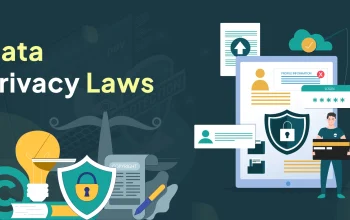Top Legal Trends and Changes in U.S. Law for 2025
As the legal landscape continually evolves, staying informed about upcoming trends and changes in U.S. law is crucial for businesses, legal professionals, and individuals alike. The year 2025 promises to bring significant shifts in various areas of law, driven by technological advancements, societal changes, and legislative reforms. This article delves into the top legal trends and changes anticipated in U.S. law for 2025, offering insights into how these developments may impact different sectors.
1. Rise of Artificial Intelligence and Data Privacy Regulations
a. Enhanced Data Protection Laws
As technology advances, data privacy and protection have become increasingly critical. In 2025, we can expect more stringent regulations to address the challenges posed by artificial intelligence (AI) and data collection:
- Updated Regulations: States like California, Virginia, and Colorado have already implemented comprehensive data privacy laws. Anticipate these regulations to expand and become more uniform across the U.S., focusing on data collection, consent, and user rights.
- AI and Data Privacy: New laws may address how AI systems collect, store, and utilize personal data. There will likely be increased scrutiny on AI-driven data practices to ensure transparency and accountability.
b. Federal Data Privacy Legislation
A federal data privacy law is expected to gain traction in 2025:
- Uniform Standards: A national data privacy framework would create uniform standards across states, simplifying compliance for businesses and enhancing consumer protection.
- Consumer Rights: The law may include provisions for data access, deletion, and portability, giving consumers greater control over their personal information.
2. Expansion of Remote Work Regulations
a. Remote Work Policies
The COVID-19 pandemic accelerated the adoption of remote work, leading to new legal considerations for employers and employees:
- Remote Work Agreements: Expect more formalized regulations regarding remote work agreements, including stipulations on work hours, data security, and compensation.
- Workplace Safety: Laws may evolve to address the safety and ergonomics of home office setups, ensuring that remote work environments meet certain standards.
b. Cross-State Employment Laws
As remote work becomes more prevalent, navigating employment laws across different states will become increasingly important:
- Multi-State Compliance: Companies with remote employees in various states will need to comply with a patchwork of state laws related to wages, benefits, and workplace regulations.
- Tax Implications: There may be new regulations addressing the tax implications of remote work, including how to handle income tax and unemployment contributions for remote employees.
3. Environmental Law and Climate Change Legislation
a. Increased Focus on Climate Change
Environmental law is poised for significant changes as the U.S. government and states ramp up efforts to combat climate change:
- Greenhouse Gas Emissions: Expect more stringent regulations on greenhouse gas emissions, including limits on carbon emissions and incentives for renewable energy adoption.
- Climate Litigation: There may be an increase in climate-related lawsuits as individuals and organizations seek legal recourse for environmental damage and inaction.
b. Sustainability Requirements
Businesses will face new sustainability requirements:
- Corporate Responsibility: Companies may be required to disclose their environmental impact and sustainability efforts, leading to increased transparency and accountability.
- Consumer Protection: New laws may protect consumers from greenwashing, ensuring that environmental claims made by companies are accurate and substantiated.
4. Legalization and Regulation of Cannabis
a. Federal Legalization
The legalization of cannabis at the federal level is a highly anticipated change in U.S. law:
- Legislative Developments: Congress is expected to introduce and potentially pass legislation to legalize cannabis nationwide, creating a regulated market and addressing issues related to banking and taxation.
- State vs. Federal Law: The interplay between federal and state cannabis laws will continue to evolve, affecting how businesses and consumers navigate the legal landscape.
b. Regulatory Framework
With legalization, a comprehensive regulatory framework will be established:
- Licensing and Compliance: New regulations will govern the licensing of cannabis businesses, including cultivation, distribution, and sales.
- Public Health and Safety: Laws will address public health and safety concerns related to cannabis use, including packaging, labeling, and advertising restrictions.
5. Evolving Criminal Justice Reforms
a. Sentencing and Rehabilitation
Criminal justice reform will remain a prominent issue in 2025:
- Sentencing Reform: There may be continued efforts to reform sentencing laws, including reducing mandatory minimum sentences and promoting alternative sentencing options.
- Rehabilitation Programs: Increased focus on rehabilitation and reintegration programs for offenders, aiming to reduce recidivism and support successful reentry into society.
b. Policing and Accountability
Policing practices and accountability measures will continue to evolve:
- Use of Force Policies: There may be new regulations governing the use of force by law enforcement officers, with an emphasis on de-escalation and accountability.
- Body Cameras and Transparency: The use of body cameras and other recording devices will likely be expanded to enhance transparency and accountability in policing.
6. Intellectual Property and Technology Innovations
a. Protection of Digital Assets
As technology advances, intellectual property (IP) laws will need to adapt:
- Digital Content: New regulations may address the protection of digital content, including software, digital media, and online platforms, ensuring that creators and businesses can safeguard their IP.
- AI and IP: The rise of AI will prompt discussions on how to protect inventions and creations generated by AI systems, including issues related to patentability and ownership.
b. Cybersecurity and IP Theft
Cybersecurity will remain a critical concern:
- Enhanced Protections: Expect stronger regulations to address cybersecurity threats and IP theft, including requirements for businesses to implement robust security measures.
- Legal Recourse: There may be expanded legal remedies for victims of cyber-attacks and IP theft, including penalties and compensation for damages.
7. Health and Medical Law Changes
a. Telemedicine Regulations
Telemedicine has become increasingly important, and regulatory changes will continue to shape this field:
- Licensing and Reimbursement: New regulations will address licensing requirements for telemedicine providers and reimbursement policies, ensuring that telemedicine services are accessible and adequately covered by insurance.
- Privacy and Security: Enhanced privacy and security measures will be implemented to protect patient information during telemedicine consultations.
b. Drug Approval and Access
Changes in drug approval and access will impact healthcare:
- Streamlined Approval: Efforts to streamline the drug approval process will continue, potentially accelerating the availability of new treatments and medications.
- Access to Medications: Regulations may address issues related to the affordability and accessibility of medications, ensuring that patients can access necessary treatments.
8. Conclusion
The legal landscape in the United States is poised for significant changes in 2025, driven by advancements in technology, shifts in societal values, and evolving legislative priorities. From data privacy and remote work regulations to environmental law and cannabis legalization, the coming years will bring new challenges and opportunities for businesses, legal professionals, and individuals.
By staying informed about these top legal trends and changes, you can better navigate the evolving legal environment and prepare for the impacts these developments may have on your personal and professional life. Whether you are a business owner, legal practitioner, or concerned citizen, understanding and adapting to these legal trends will be key to staying ahead in a rapidly changing world.


